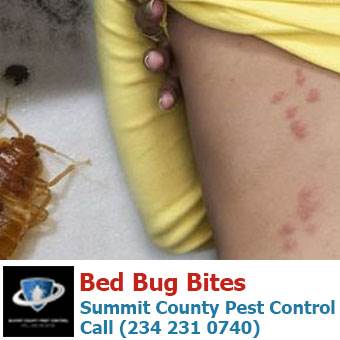A1 Bed Bug Removal Houston: Trusted Extermination Services
A1 Bed Bug Removal Houston: Trusted Extermination Services
Blog Article
Comprehending the Lifecycle of Bugs for Targeted Control Techniques
Understanding the lifecycle of insects is a basic aspect of effective bug management approaches. Through a much deeper understanding of just how insects thrive and advance, tailored control approaches can be developed to address certain factors in their lifecycle, eventually leading to more successful insect administration end results.
Relevance of Comprehending Insect Lifecycle
Understanding the lifecycle of insects is crucial for developing efficient and targeted control approaches in bug monitoring. By understanding the numerous phases a pest goes via from egg to adult, pest control professionals can determine at risk points in the lifecycle where treatment can be most effective.
Furthermore, recognizing the particular environmental conditions necessary for each and every phase of the bug's lifecycle can guide decisions on habitat adjustment or exemption methods to interfere with the lifecycle and reduce pest populaces. This expertise makes it possible for pest monitoring professionals to carry out positive procedures instead of depending entirely on responsive treatments, bring about more long-lasting and lasting pest control remedies. Ultimately, a detailed understanding of pest lifecycles empowers bug control professionals to tailor their approaches effectively, optimizing and minimizing ecological impacts control outcomes.
Key Stages in Pest Development
To efficiently implement targeted control strategies in pest monitoring, a vital facet lies in thoroughly determining and comprehending the vital phases in parasite development. Bug growth generally consists of several crucial stages that are important for their lifecycle and management.

Vulnerabilities in Pest Lifecycle
Throughout the different stages of a pest's lifecycle, distinctive vulnerabilities emerge that can be strategically targeted for efficient control steps (A1 Bed Bug treatment houston). One crucial vulnerability lies in the egg stage, where parasites are commonly much more at risk to certain insecticides or organic control agents due to their soft outer covering, making them simpler targets for intervention. Understanding these susceptabilities in the bug lifecycle is crucial for developing reliable and exact control strategies that efficiently handle bug populations while decreasing environmental effect.
Carrying Out Targeted Control Actions

Applying targeted control procedures commonly involves a multi-faceted technique. This might consist of environment modification to make the environment much less friendly to insects, such as eliminating standing water look at here now for insect control or securing entry points for rodents. Additionally, organic control methods can be utilized, where natural killers or pathogens are introduced to keep insect populations in check.
Integrated Parasite Management (IPM) strategies that combine different control actions in a collaborated and lasting fashion are often the most effective in achieving long-term pest administration goals. By carrying out targeted control procedures based on a complete understanding of pest lifecycles, parasite populations can be efficiently controlled while reducing risks to human health and wellness and the environment.
Improved Parasite Administration Practices

In addition, the consolidation of organic control representatives, such as all-natural predators or virus of bugs, can assist decrease dependence on chemical pesticides and advertise a more well balanced environment. Applying physical barriers and traps can likewise be component of boosted parasite monitoring practices, supplying non-toxic and targeted options for bug control. Furthermore, making use of pheromones and other semiochemicals can interfere with pest mating home patterns and interaction, causing decreased pest populaces over time.
Conclusion
By determining crucial stages in bug development and vulnerabilities in their lifecycle, targeted control steps can be executed to minimize parasite populations. Boosted pest monitoring techniques can aid lower the reliance on broad-spectrum pesticides and promote even more lasting and ecologically pleasant parasite control techniques.
Comprehending the lifecycle of parasites is crucial for establishing effective and targeted control strategies in insect administration. By comprehending the various stages an insect goes with from egg to grownup, pest control experts can recognize prone points in the lifecycle where pop over to these guys treatment can be most effective. Inevitably, an extensive understanding of pest lifecycles equips insect control specialists to tailor their techniques successfully, making the most of and reducing ecological impacts control outcomes.
By applying targeted control procedures based on a thorough understanding of insect lifecycles, parasite populaces can be successfully controlled while decreasing threats to human health and wellness and the setting.
By identifying crucial stages in parasite growth and susceptabilities in their lifecycle, targeted control steps can be executed to reduce pest populations.
Report this page